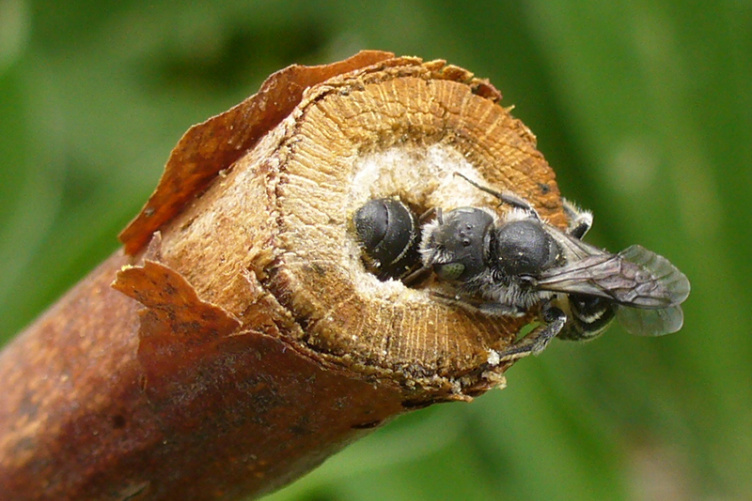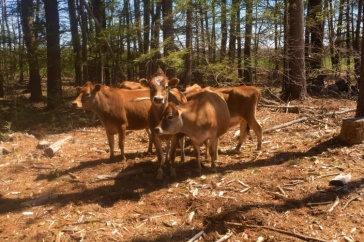
Photo: Molly Jacobson '17
A UNH researcher has received a $550,000 grant that will help understand and protect the pollinators that are so critical to the nation’s food supply. Sandra Rehan received the Pollinator Health Fund grant from the Foundation for Food and Agriculture Research (FFAR), a nonprofit created by the 2014 Farm Bill.
Rehan is an assistant professor of biological sciences in the UNH College of Life Sciences and Agriculture. The grant, which totals $1.1 million as a result of matching funds, will support a project to understand the stressors facing New England’s wild bee species as well as promote education and outreach and develop bee-friendly practices.
Rehan says the project will produce new information on wild bee floral preferences and factors driving population changes as well as a clearer understanding of how key stressors impact pollinator health.
“The food and agriculture community will benefit from much needed regionally specific pollinator habitat requirements, leading to better land management, conservation policies and strategies. Consequently, pollinator communities and ecosystems will be healthier, and the future of our food crops will be more secure.”
As a part of the project, Rehan and her student team will develop ecological and geospatial models to better understand the many factors affecting wild bees, including land use, the availability of flowering plants and relationships with other bee species. They will also create an interactive key to help with the accurate identification of wild bees. Once completed, it will be available through open access publications and websites.
The team will also produce the only comprehensive field guide to the bees of New England. The guide will feature bee images taken by the Rehan lab, a historical overview of bees and pollination ecology in the region, summaries of all major bee families, genera and species common to the region. In conjunction with the field guide, Rehan will launch the New England Bee ID course as part of a multistate endeavor to train much needed pollinator taxonomists.
“The food and agriculture community will benefit from much needed regionally specific pollinator habitat requirements, leading to better land management, conservation policies and strategies,” she says. “Consequently, pollinator communities and ecosystems will be healthier, and the future of our food crops will be more secure.”
Rehan’s research centers on wild bees, the mostly solitary bee species that make up about 98 percent of the global bee population. These important pollinators play a vital role in the ecosystem and are often vulnerable to land and environmental changes as well as competition from honeybees raised by beekeepers specifically to produce honey or pollinate crops.
FFAR established its Pollinator Health Fund in response to the agricultural threat posed by declining pollinator health. Insect pollinators contribute an estimated 24 billion dollars to the United States economy annually.
“Managed and native pollinators are vital to many crop production systems and the ecological resources that support them,” says Sally Rockey, executive director of FFAR. “The Foundation for Food and Agriculture Research congratulates Sandra Rehan and UNH and looks forward to results that will inform science-based approaches to improving pollinator health.”
UNH is one of 16 grantee organizations that received a total of $7 million in FFAR funding toward research and technology development addressing the social and economic challenges faced by beekeepers, farmers, ranchers, private businesses and others to contribute to a healthy pollinator population that supports crop yields and agricultural ecosystems.
Learn more about the FFAR Pollinator Health Fund.
-
Written By:
Sarah Schaier | College of Life Sciences and Agriculture
















































